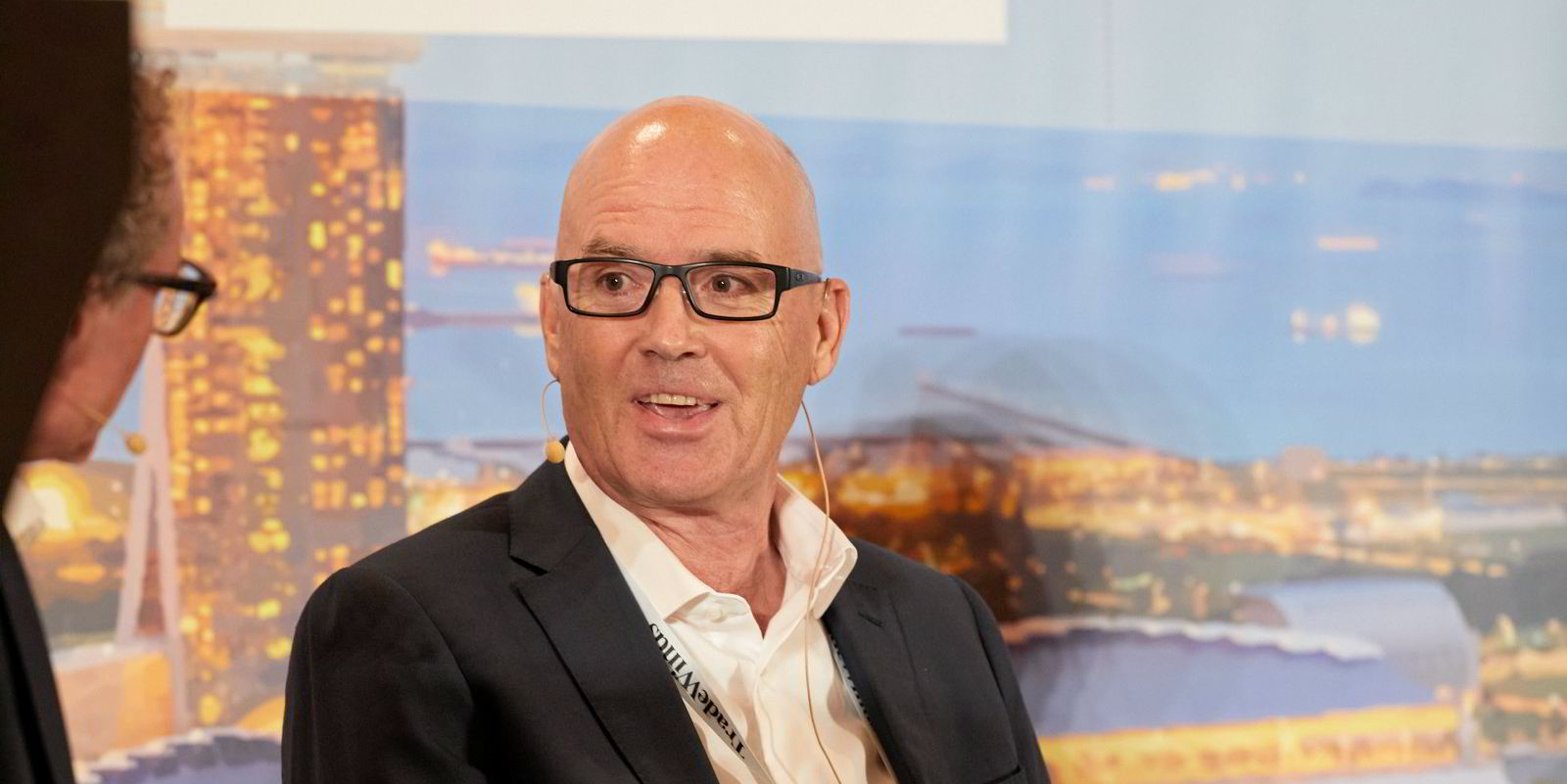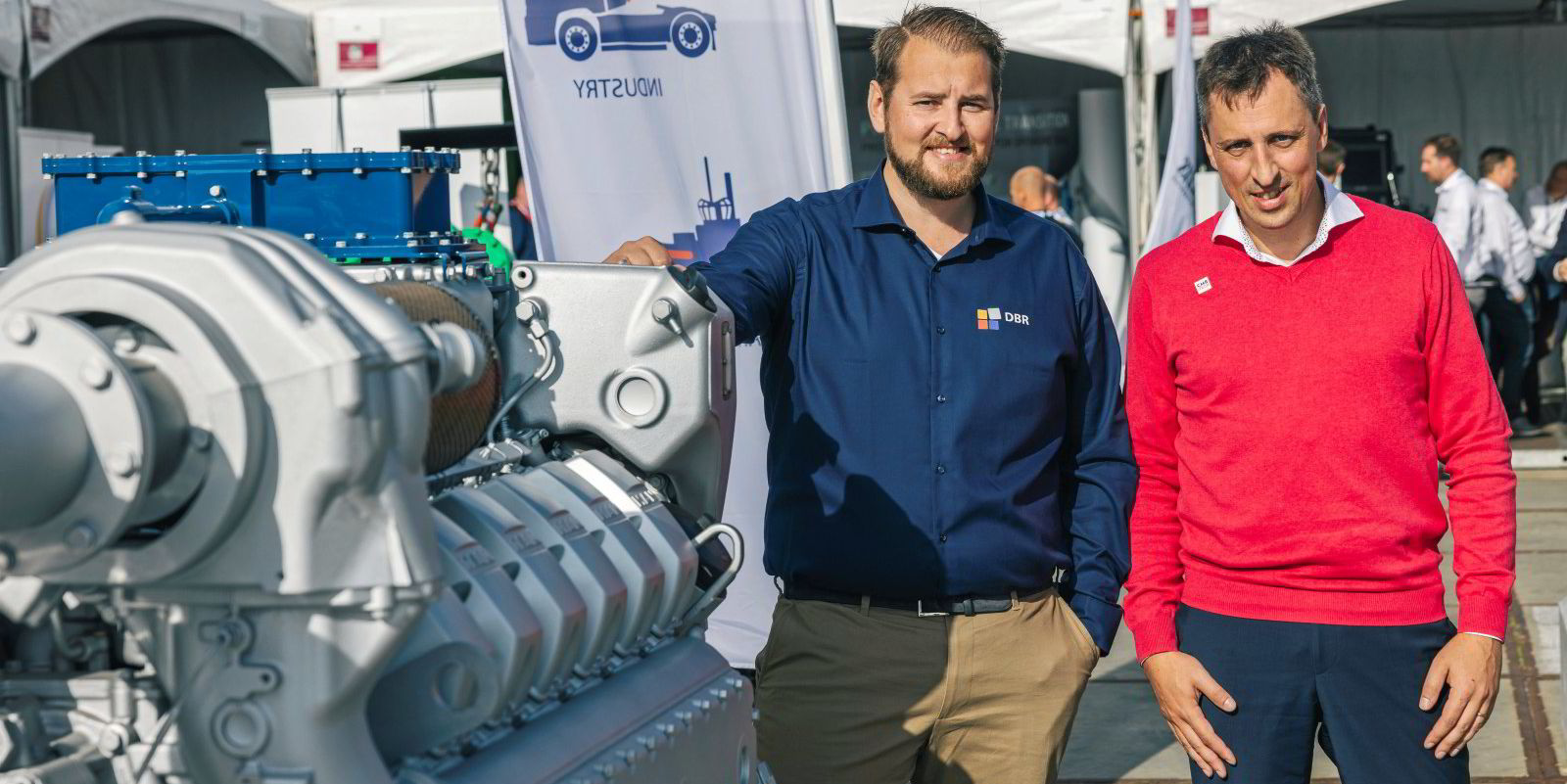Climate champion James Marshall of Berge Bulk has used his own name for the Singapore company’s strategy to decarbonise his fleet.
The bulker owner’s chief executive set out the four pillars of what he dubs the “Marshall Plan”.
They are improving fleet efficiency, leveraging the latest maritime technology, piloting new fuels and investing in carbon capture.
Marshall, who founded the company in 2007, has grown the fleet from 12 initial ships to 85 today.
“We’ve been pretty passionate on leading the way on climate and decarbonisation strategy since day one,” he told TradeWinds.
“I talk about a four-pronged strategy of attack and I use the war metaphor because I really do think we have to rally the troops and get cracking on it.”
He joked that the Marshall Plan name may seem immodest, but, after all, it is his name.
And it is appropriate. Like the post-World War II reconstruction plan of the same name, the idea is to try to “rebuild damage we’ve done on climate but also obviously to prevent further change”.
Marshall said: “We forget that we’ve actually got to go negative on carbon and not just stop carbon going into the air. At some stage, we need to actually remove carbon if we’re going to have any chance of keeping to 1.5C degrees.”
Marshall added that the group has been obsessed with new paint, Mewis ducts, propeller boss cap fins, energy heat recovery systems and echo sounders to keep propellers clean.
But that is not to say Berge Bulk will not consider new fuels for new ships.
2030 target for a zero-emission ship
“We are looking very actively at new fuels,” Marshall said. “We have a target to have a zero-emission vessel by 2030 at the latest.
“We want to have a zero-emission fleet by 2050. So we need to keep moving forward on that.”
Methanol has been under consideration, with green ammonia to follow and possibly even nuclear power, which Berge Bulk has been examining closely for the past 10 years.
But Marshall said the existing world fleet is still going to emit a lot of carbon for the next 20 or 30 years — and probably longer than that.
“So we need to capture what carbon goes up into the air until we’re fully zero-emission on fuels,” he said.
“We’re looking at and investing in carbon capture systems on board to catch that remaining CO2.”
Land-based carbon capture is being used to hit a target of carbon neutrality by 2025.
“We’ve committed to planting 25m trees,” Marshall told TradeWinds. “We’ve planted 10m already.
“There’s been quite a lot of headwinds against carbon offsetting. But I still feel that that’s really the only tool that we have in addition to making our ships more efficient today.”
Bulker rates moving the right way
Marshall believes that if the industry leaves the existing fleet behind, it is going to take too long to get pure-zero carbon fuels or even biomethanol onto ships.
“There’s just not enough available to make a meaningful impact in the near term,” he said. “So I do think, you know, irrespective of economic returns, it’s up to all of us to try to make the existing fleet more efficient.”
Berge Bulk has taken re-delivery of its 210,000-dwt newcastlemax Berge Olympus (built 2018) after a retrofitting with four WindWings from BAR Technologies, with more to follow.
Marshall is now hoping the dry bulk market continues to improve, “as I’m sure it will”.
“We finally got a sensible level after a not very sensible level for a few months,” he said. “I think it’s good that we have at least a sensible rate, which can help contribute to decarbonisation, which is expensive. It’s important that the market stays stable and recovers to some extent.”




